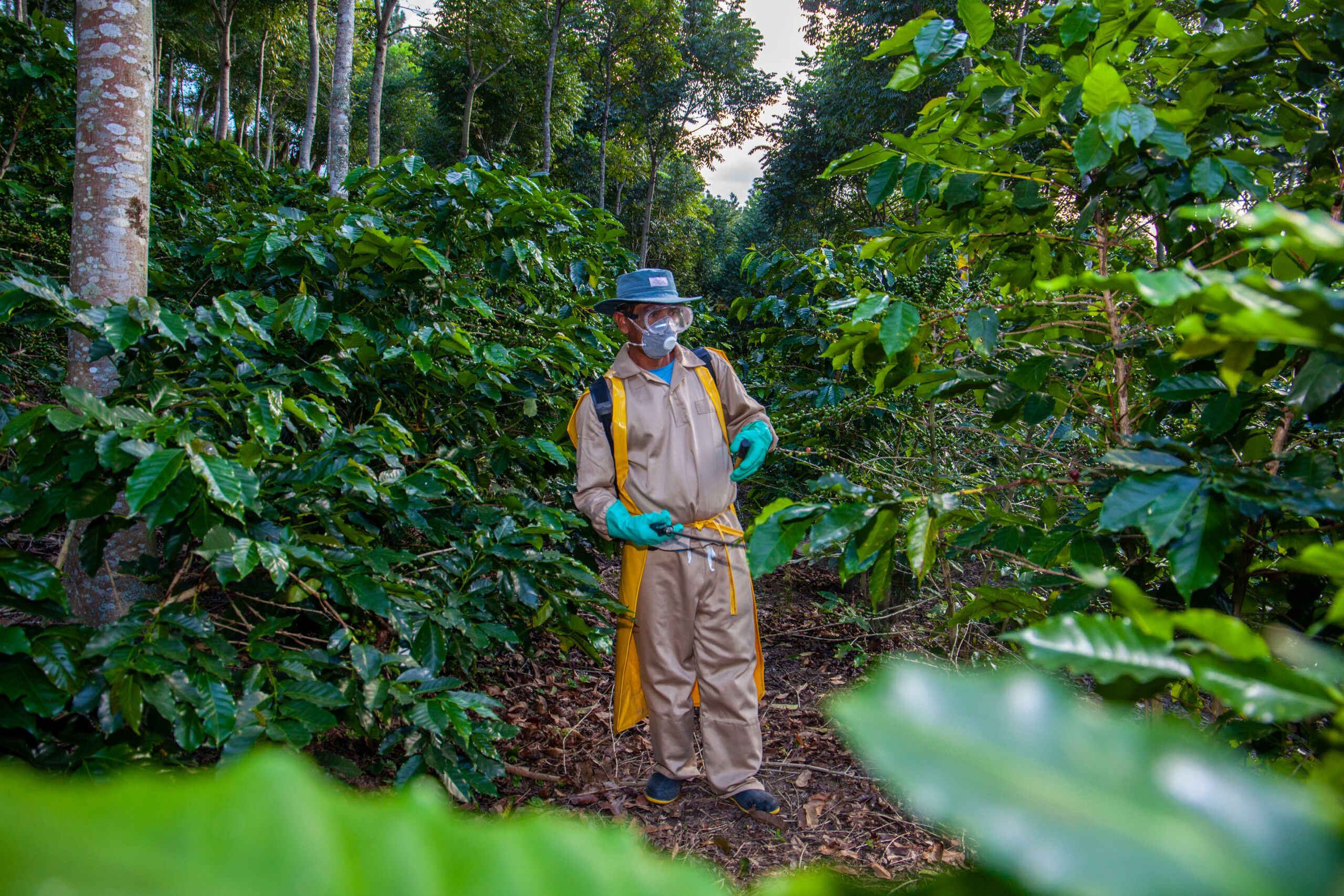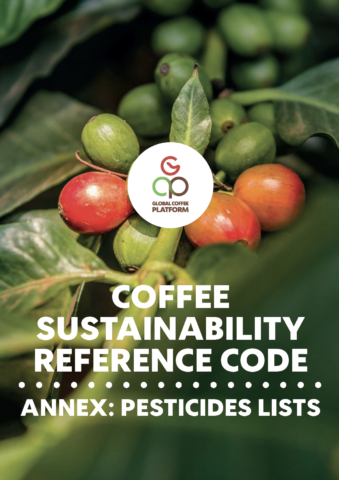
Building on publication of the Coffee Sustainability Reference Code in October 2021, GCP launched the Pesticides Action Group, a practical action opportunity for GCP Members to collaboratively advance and support the sector in general and coffee farmers in particular, in the transition to less hazardous pesticides.
Highly Hazardous Pesticides are pesticides that cause disproportionate harm to the environment and human health. They are still widely used, often because of a lack of awareness of – or access to – sustainable alternatives. GCP considers these substances to be incompatible with a more sustainable coffee production. However, it is recognised that there exist multiple barriers to, such as cost, availability and familiarity that can pose phase-out challenges.
The Coffee SR Code has established two lists of hazardous pesticides, with the aim to eliminate those on the Prohibited List, and to reduce the use of those on the Phase-out List until they are phased-out by the target date of 2030.
This technical action group will work to identify, prioritize, share best practices and provide information on reducing, phasing out and eliminating damaging pesticides. It will also explore effective, feasible and financially viable alternatives to substances that must be phased out, and will share results with GCP Members, Country Platforms in coffee producing countries and the broader sector. Results of this work will support farmers in the transition to less hazardous pesticides and will be used to inform global and local sustainability programs/efforts on pesticides.
Given the challenges that coffee producers face to eliminate or phase out some of the pesticides in these lists, producers and the sector as whole need support to help identify, test and adopt suitable alternatives. To support this transition action is needed that involves key local and international stakeholders in the supply chain. Therefore, GCP convened an action oriented and problem-solving Pesticides Action Group, which, as a first step, is gathering information on the state of pest management, pesticide use and alternatives in the sector. With this information, the GCP Pesticide Action Group will prioritise efforts to demonstrate and trial alternatives to Highly Hazardous Pesticides that are prohibited or due for phase-out.

Meet the Members
The Pesticides Action Group is a diverse group that includes experts of GCP Members from producing and consuming countries as well as from different segments in the coffee value chain.
- Alvaro Gaitán, Director of Science and Technology Research (FNC)
- Ambrose Mbugua Kirobi, Senior Agronomist (Coffee Management Services Ltd, Kenya)
- Bruno Ribeiro, Sustainability Manager (JDE Peet’s, Brazil)
- Do Thanh Chung, Project Manager, GCP Collective Action Initiative – Responsible Use of Agro-inputs in Vietnam (GCP)
- Eduardo Sampaio, Consultant, GCP Brazil and Cocoa Action (World Cocoa Foundation)
- Fernando Ramírez Muñoz, Professor (Instituto Regional de Estudios en Sustancias Tóxicas (IRET), National University of Costa Rica)
- Giovanni Lamberti, Technical and Regulatory Manager, European Coffee Federation (ECF)
- Jeremy Lefroy, Executive Director (Café Africa) and Chair of GCP Pesticides Action Group
- Juliana Jaramillo, Lead Regenerative Agriculture, Advocacy and Themes, Rainforest Alliance
- Kedar Nepal, Sustainability Manager, 4C services
- Oksana Forkutsa, Senior Project Manager, Fairtrade International
- Paula Mejia, Sustainability Manager, NKG
- Piet van Asten, Head Sustainable Production Systems – Coffee (ofi)
- Rajan Bhopal, International Project Manager, Pesticide Action Network UK
- Stefan Canz, Head of Coffee and Cocoa / Corporate Sustainable Agriculture Development (Nestlé)
- Xavier Euceda, Regional Coordinator of Plant Health Programs and Projects (OIRSA)